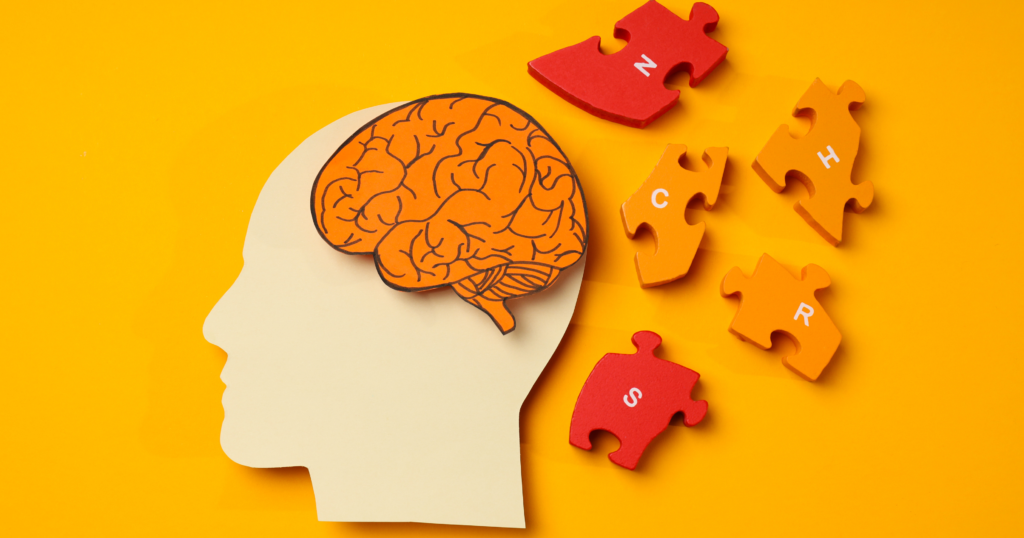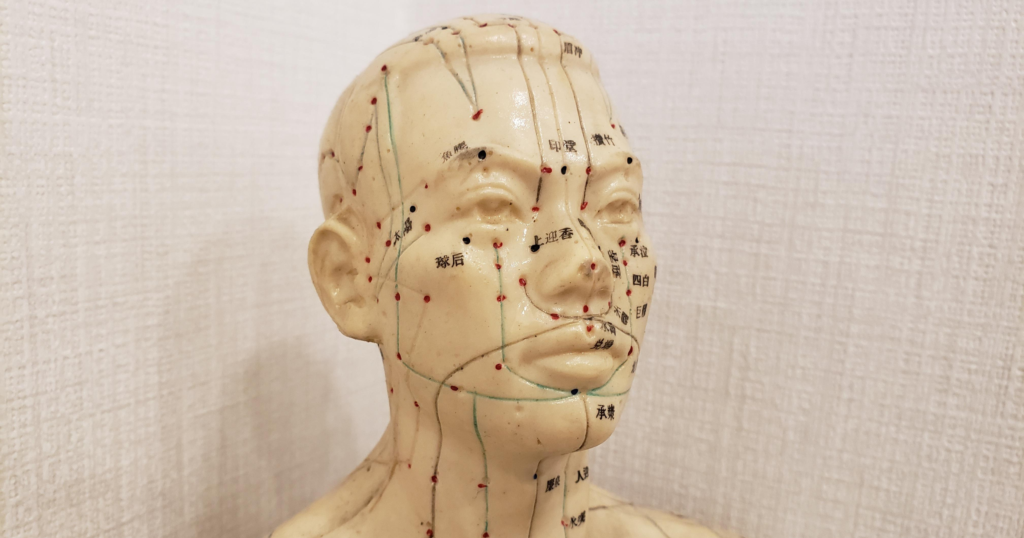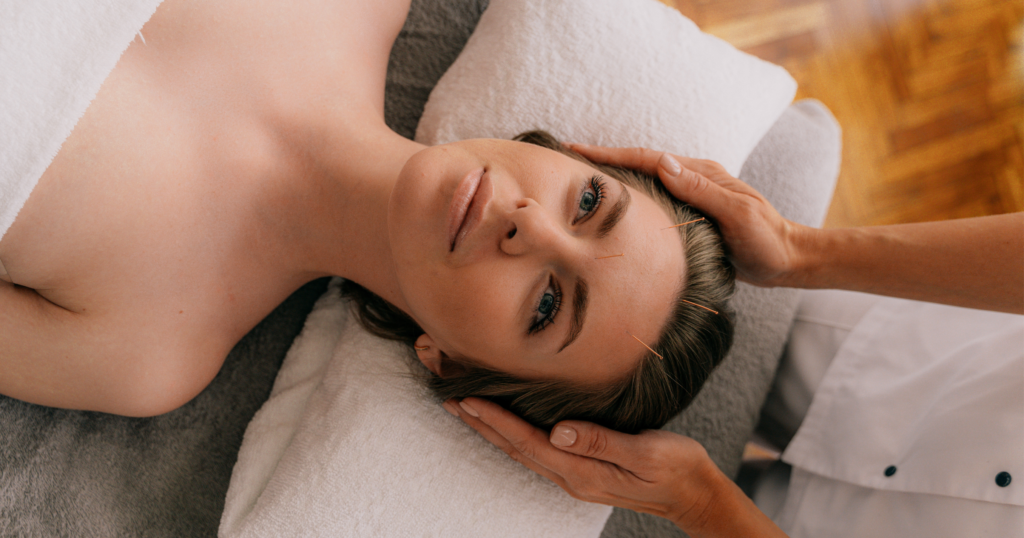Treating Memory Loss with Acupuncture: What Science Says
As we navigate the complexities of modern life, memory loss and cognitive decline have become increasingly prevalent, affecting millions worldwide. The impact is profound, touching not just individuals but families and communities. Memory loss can manifest in various forms—transient, age-related, injury-related, or disease-related—each with its unique challenges.
Amidst the quest for effective treatments, acupuncture has emerged as a promising complementary therapy. This ancient practice, rooted in Traditional Chinese Medicine (TCM), offers a holistic approach to enhancing cognitive function and improving memory. In this article, we will delve into the efficacy, mechanisms, and practical applications of acupuncture in treating memory loss, supported by scientific evidence and expert insights.
Understanding Memory Loss and Cognitive Decline
What is Memory Loss?
Memory is a complex cognitive function that encompasses various types, including short-term, long-term, sensory, and motor memory. Short-term memory involves holding information for a brief period, while long-term memory stores information over an extended time. Sensory memory processes sensory information, and motor memory involves the recall of physical skills and actions. As we age, natural changes can affect these memory systems, leading to a gradual decline in cognitive function.
Causes of Memory Loss and Cognitive Decline
Memory loss can result from a combination of factors:
- Age-related changes: Normal aging can lead to a decline in cognitive abilities, including memory.
- Medical conditions: Alzheimer’s disease, dementia, stroke, traumatic brain injury, and infections can significantly impact memory and cognitive function.
- Lifestyle factors: Poor diet, lack of exercise, sleep deprivation, stress, and substance abuse can contribute to memory loss.
- Medications: Certain medications can impair cognitive function and memory.
- Genetic factors: Family history and genetic predispositions can increase the risk of developing conditions that affect memory.
Symptoms of Memory Loss
Symptoms of memory loss can vary but often include:
- Forgetfulness
- Difficulty concentrating
- Confusion
- Disorientation
- Difficulty with language and communication
- Impaired judgment
Diagnosis and Evaluation
Diagnosing memory loss involves a comprehensive approach:
- Medical history and physical exam: To identify underlying medical conditions.
- Cognitive tests and neuropsychological assessments: These tests evaluate various aspects of cognitive function, including memory, attention, and problem-solving abilities.
- Brain imaging (MRI, CT scans): Used to rule out other conditions that may cause similar symptoms, such as tumors or vascular diseases.
How Acupuncture Supports Memory and Cognitive Function
Acupuncture has been studied for its potential to improve brain function, particularly in memory-related conditions. By stimulating specific body points, it can enhance cerebral blood flow, regulate neurotransmitters, and reduce inflammation—key factors in cognitive health.
Techniques like scalp acupuncture and electroacupuncture show promise in improving memory recall, attention, and cognitive processing. These methods are used in integrative treatments for mild cognitive impairment, post-stroke cognitive decline, and early-stage Alzheimer’s disease. While the evidence is promising, more rigorous studies are needed to confirm acupuncture’s effectiveness.
Acupuncture for Memory Loss: The Evidence
Scientific Studies and Research Findings
Numerous clinical trials and meta-analyses have investigated the impact of acupuncture on memory and cognitive function, revealing promising results. These studies highlight significant improvements in several cognitive domains:
- Memory Recall: Acupuncture has been shown to enhance memory recall, particularly in patients with mild cognitive impairment (MCI) and Alzheimer’s disease.
- Cognitive Processing Speed: Acupuncture can improve cognitive processing speed, which is crucial for daily functioning and decision-making.
- Attention and Concentration: Studies indicate that acupuncture enhances attention and concentration, benefiting individuals with cognitive decline.
- Overall Cognitive Performance: Meta-analyses demonstrate that acupuncture improves overall cognitive performance, as measured by standardized cognitive assessment tools like the Mini-Mental State Examination (MMSE) and Montreal Cognitive Assessment (MoCA).
Specific Conditions and Populations
Acupuncture has been studied in various populations experiencing memory loss:
- Alzheimer’s Disease and Dementia: Research suggests that acupuncture can improve cognitive function in Alzheimer’s patients, often with fewer side effects than conventional treatments. For instance, a study found that acupuncture combined with medication was more effective than medication alone in improving cognitive scores.
- Mild Cognitive Impairment (MCI): Acupuncture has been consistently shown to improve cognitive function in MCI patients, making it a valuable adjunctive treatment.
- Age-Related Memory Loss: Acupuncture may help mitigate age-related cognitive decline by enhancing blood flow and promoting neuroplasticity.
- Memory Loss After Stroke or Traumatic Brain Injury: Studies indicate that acupuncture can aid in cognitive recovery post-stroke, improving cognitive function and self-care abilities.
Mechanisms of Action
The mechanisms by which acupuncture improves memory and cognitive function are multifaceted:
- Increasing Cerebral Blood Flow and Oxygen Supply: Acupuncture enhances blood flow to the brain, which is essential for maintaining healthy cognitive function.
- Modulating Neurotransmitter Levels: Acupuncture influences neurotransmitters like acetylcholine and serotonin, which play critical roles in memory and cognitive processing.
- Reducing Inflammation and Oxidative Stress: By reducing inflammation and oxidative stress, acupuncture may protect the brain from further damage.
- Promoting Neuroplasticity and Nerve Regeneration: Acupuncture may stimulate neuroplasticity, allowing the brain to adapt and recover from injury or disease.
Practical Applications of Acupuncture for Memory Loss
What to Expect During an Acupuncture Session
During your first visit, you’ll typically undergo an initial consultation and assessment. This is an opportunity for our acupuncturists at ACA Acupuncture and Wellness to understand your medical history, current symptoms, and any previous treatments you’ve tried. Based on this information, a personalized treatment plan will be developed, outlining the frequency of sessions and the specific techniques to be used.
The acupuncture procedure itself involves the insertion of fine needles into specific points on the body. You may feel a slight pinch upon insertion, but most people find the experience relaxing and painless. Some common sensations include warmth, numbness, or a gentle tingling at the needle site. While acupuncture is generally safe, potential side effects can include minor bruising or dizziness. Your practitioner will guide you through any necessary precautions to ensure a safe and effective treatment.
Acupuncture Points for Memory Enhancement
Certain acupuncture points are specifically chosen for their ability to enhance cognitive function and memory. These include:
- Baihui (GV20): Located at the top of the head, this point is believed to regulate brain function and promote mental clarity. It’s often used to improve memory and concentration.
- Sishencong (EX-HN1): Situated on the scalp, this group of points is thought to enhance cognitive function by stimulating blood flow to the brain.
- Shenting (GV24): Located on the forehead, this point is associated with mental clarity and focus.
These points are typically used in combination to create a synergistic effect, enhancing their individual benefits.
Lifestyle Recommendations to Enhance Acupuncture’s Effects
To maximize the benefits of acupuncture for memory loss, incorporating lifestyle changes can be highly beneficial.
Dietary Guidelines for Brain Health
A diet rich in omega-3 fatty acids, antioxidants, and vitamins supports brain health. Foods like salmon, walnuts, blueberries, and leafy greens are excellent choices. Conversely, it’s advisable to limit intake of processed foods, sugars, and saturated fats, which can negatively impact cognitive function.
Exercise and Physical Activity
Regular exercise, such as walking or yoga, improves blood flow and cognitive function. Physical activity stimulates the growth of new neurons and enhances neuroplasticity, making it easier for the brain to adapt and compensate for age-related changes.
Stress Management Techniques
Stress can significantly impair cognitive function, making stress management crucial. Techniques like meditation, yoga, and deep breathing exercises can reduce stress-related cognitive decline by promoting relaxation and improving focus.
Cognitive Training and Brain Exercises
Engaging in cognitive training and brain exercises can further enhance the effects of acupuncture. Activities such as puzzles, memory games, and learning new skills challenge the brain and promote neuroplasticity, helping to maintain cognitive health over time.
Addressing Concerns and Misconceptions
Is Acupuncture Safe?
Acupuncture is widely recognized for its safety when administered by a qualified practitioner. The risk of adverse effects is minimal, with rare occurrences of fainting or minor bleeding at the needle site. However, it is crucial to note that acupuncture is not suitable for everyone. For instance, individuals with pacemakers should avoid electroacupuncture, and those with bleeding disorders or taking anticoagulant medications may need special precautions. Pregnant women should also consult with their healthcare provider before undergoing acupuncture.
Is Acupuncture Effective for Everyone?
While acupuncture can be highly beneficial for many individuals, its effectiveness varies from person to person. Individual results may differ based on several factors, including the severity of memory loss, overall health status, and lifestyle habits. For example, someone with mild cognitive impairment may experience more pronounced benefits than someone with advanced dementia. Additionally, lifestyle factors such as diet, exercise, and stress levels can influence how well acupuncture works.
Acupuncture vs. Other Treatments for Memory Loss
Compared to conventional medical treatments, acupuncture offers a unique holistic approach with fewer side effects. Unlike medications, which can have significant side effects, acupuncture provides a gentle and non-invasive method to enhance cognitive function. It can be used in conjunction with medications or cognitive therapies to potentially amplify their benefits. For instance, combining acupuncture with cognitive training may lead to synergistic effects, improving cognitive function more than either treatment alone. This complementary approach allows patients to explore a broader range of options for managing memory loss, offering hope and flexibility in their treatment plans.
Why Treating Memory Loss with Acupuncture Is Worth Considering
As we explore the intersection of traditional practices and modern medicine, acupuncture emerges as a valuable tool in addressing memory loss. By understanding its mechanisms and applications, we can harness its potential to enhance cognitive health. At ACA Acupuncture, we are committed to providing compassionate and comprehensive care, integrating acupuncture with other therapies to support our patients’ well-being. We encourage you to explore acupuncture as a complementary therapy for memory loss and to take proactive steps towards maintaining your cognitive health. Together, we can navigate the complexities of memory loss with hope and resilience.
Sources:
Wu, L., Dong, Y., Zhu, C., & Chen, Y. (2023). Effect and mechanism of acupuncture on Alzheimer’s disease: A review. Frontiers in Aging Neuroscience, 15. https://doi.org/10.3389/fnagi.2023.1035376
Du, K., Yang, S., Wang, J., & Zhu, G. (2022). Acupuncture Interventions for Alzheimer’s Disease and vascular Cognitive Disorders: A review of mechanisms. Oxidative Medicine and Cellular Longevity, 2022, 1–18. https://doi.org/10.1155/2022/6080282
Frequently Asked Questions
Can acupuncture treat memory loss?
Acupuncture has shown promise in treating memory loss, particularly in cases of mild cognitive impairment (MCI) and early stages of dementia. Studies indicate that acupuncture can improve cognitive function, including memory recall and learning abilities, by enhancing brain activity and promoting neuroplasticity. While it is not a cure-all, acupuncture can be an effective complementary therapy when used alongside other treatments.
What type of therapy for memory loss?
Acupuncture is a form of physical therapy that involves the insertion of fine needles into specific points on the body to stimulate the nervous system and promote healing. It offers a holistic approach to treating memory loss, focusing on enhancing cognitive function through increased blood flow, reduced inflammation, and improved neurotransmitter balance. Other therapies for memory loss include cognitive training, medications, and lifestyle changes.
What is the best thing to take for memory loss?
There is no single “best” treatment for memory loss, as effectiveness can vary depending on the individual and the underlying cause of memory issues. A combination of lifestyle changes (such as a balanced diet, regular exercise, and stress management) and medical treatments (including therapies like acupuncture) often provides the most comprehensive approach. It is important to consult with a healthcare professional to determine the most suitable treatment plan.
What are the acupuncture points for memory?
Common acupuncture points used to enhance memory include Baihui (GV20), Sishencong (EX-HN1), and Shenting (GV24). These points are believed to improve cognitive function by stimulating areas of the brain associated with memory and learning. The selection of specific points may vary based on individual symptoms and conditions.
How can I make my memory sharp again?
Improving memory involves a multifaceted approach:
- Diet: Focus on foods rich in omega-3 fatty acids, antioxidants, and vitamins.
- Exercise: Regular physical activity enhances blood flow to the brain.
- Stress Management: Techniques like meditation and deep breathing can reduce stress-related cognitive decline.
- Cognitive Training: Engage in activities that challenge your brain, such as puzzles or learning new skills.
- Sleep: Ensure adequate rest to support memory consolidation.
Acupuncture: Consider incorporating acupuncture as a complementary therapy to enhance cognitive function.
Can acupressure help dementia?
While acupressure, like acupuncture, involves stimulating specific points on the body, there is less direct evidence supporting its effectiveness in treating dementia compared to acupuncture. However, acupressure may offer some benefits by promoting relaxation and reducing stress, which can indirectly support cognitive health. Further research is needed to fully understand its potential benefits for dementia patients.
Contact ACA Acupuncture & Wellness
Get in Touch
Newsletter Sign Up

ACA Franchise Opportunities
The over $4 billion US acupuncture market offers a great opportunity with over 10% annual growth rates and a continuing flow of new patients interested in the benefits of acupuncture.





